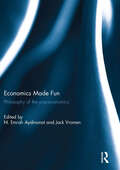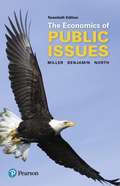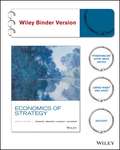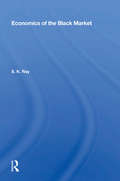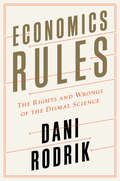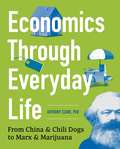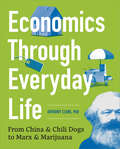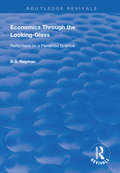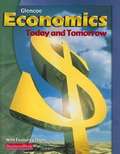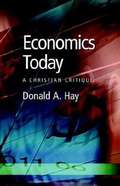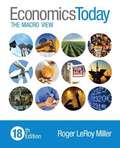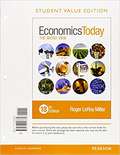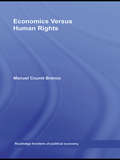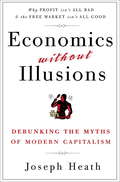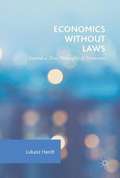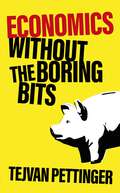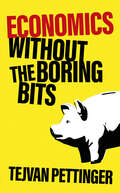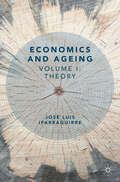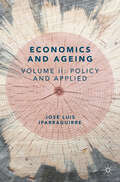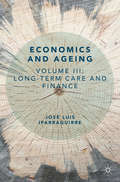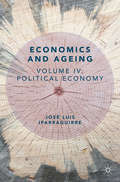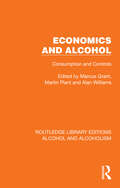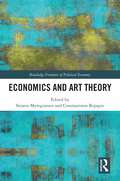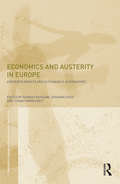- Table View
- List View
Economics Made Fun: Philosophy of the pop-economics
by N. Emrah Aydinonat and Jack VromenBest-selling books such as Freakonomics and The Undercover Economist have paved the way for the flourishing economics-made-fun genre. While books like these present economics as a strong and explanatory science, the ongoing economic crisis has exposed the shortcomings of economics to the general public. In the face of this crisis, many people, including well-known economists such as Paul Krugman, have started to express their doubts about whether economics is a success as a science. As well as academic papers, newspaper columns with a large audience have discussed the failure of economic to predict and explain ongoing trends. The emerging picture is somewhat confusing: economics-made-fun books present economics as a method of thinking that can successfully explain everyday and "freaky" phenomena. On the other hand, however, economics seems to fail in addressing and explaining the most pressing matters related to the field of economics itself. This book explores the confusion created by this contradictory picture of economics. Could a science that cannot answer its own core questions really be used to explain the logic of everyday life? This book was originally published as a special issue of the Journal of Economic Methodology.
Economics Of Public Issues
by Daniel Benjamin Roger Miller Douglass NorthThe Economics of Public Issues is a collection of brief, relevant readings that spark independent thinking and discussion in principles of economics and social issues. The 20th Edition encourages readers to apply theoretical discussions to today’s important issues to gain a deeper understanding of current microeconomic policy concerns. Spark independent thinking and classroom discussion Readings are concise, allowing for easy integration into any principles of economics or issues-based classroom. A correlation guide in the preface illustrates how to integrate topics into different courses. Conversational and informative non-technical writing is geared toward principles-level students and does not require advanced math. Using the latest debates in social policy, the authors encourage readers to question their own assumptions and the analysis offered by the media and politicians on key issues. End-of-chapter questions offer students the opportunity to test their knowledge and review chapter concepts.
Economics Of Strategy
by David Dranove David Besanko Mark Shanley Mark SchaeferEconomics of Strategy focuses on the key economic concepts students must master in order to develop a sound business strategy. Ideal for undergraduate managerial economics and business strategy courses, Economics of Strategy offers a careful yet accessible translation of advanced economic concepts to practical problems facing business managers. Armed with general principles, today's students--tomorrows future managers--will be prepared to adjust their firms business strategies to the demands of the ever-changing environment.
Economics Of The Black Market
by S. K. RayIn this first serious study of the economics of the black market, S. K. Ray looks in-depth at profiteering, black money, fraud, smuggling, government corruption, and the overall structure of the black market.
Economics Rules: The Rights And Wrongs Of The Dismal Science
by Dani RodrikIn the wake of the financial crisis and the Great Recession, economics seems anything but a science. In this sharp, masterfully argued book, Dani Rodrik, a leading critic from within, takes a close look at economics to examine when it falls short and when it works, to give a surprisingly upbeat account of the discipline. Drawing on the history of the field and his deep experience as a practitioner, Rodrik argues that economics can be a powerful tool that improves the world--but only when economists abandon universal theories and focus on getting the context right. Economics Rules argues that the discipline's much-derided mathematical models are its true strength. Models are the tools that make economics a science. Too often, however, economists mistake a model for the model that applies everywhere and at all times. In six chapters that trace his discipline from Adam Smith to present-day work on globalization, Rodrik shows how diverse situations call for different models. Each model tells a partial story about how the world works. These stories offer wide-ranging, and sometimes contradictory, lessons--just as children's fables offer diverse morals. Whether the question concerns the rise of global inequality, the consequences of free trade, or the value of deficit spending, Rodrik explains how using the right models can deliver valuable new insights about social reality and public policy. Beyond the science, economics requires the craft to apply suitable models to the context. The 2008 collapse of Lehman Brothers challenged many economists' deepest assumptions about free markets. Rodrik reveals that economists' model toolkit is much richer than these free-market models. With pragmatic model selection, economists can develop successful antipoverty programs in Mexico, growth strategies in Africa, and intelligent remedies for domestic inequality. At once a forceful critique and defense of the discipline, Economics Rules charts a path toward a more humble but more effective science.
Economics Through Everyday Life: From China & Chili Dogs To Marx and Marijuana
by Anthony ClarkEconomics is not only for academics or Wall Street titans. If you’re curious about how the economy functions and don’t know where to start, Economics will guide you through the essentials, laying out the basic concepts and issues in the field of economics, from business cycles and free markets to social security and healthcare reform, and more. Packed with eye-opening information, key concepts, and need-to-know terms, this easy-to-read primer lets you explore economics at your own pace. Get a straightforward overview of the economy that’s stripped of overwhelming jargon, so you can gain a deeper understanding of economics as it applies to everyday life. You’ll review important background on differing economic schools of thought―from influential theories to the main thinkers driving them―so you can develop your own conclusions.
Economics Through Everyday Life: From China and Chili Dogs to Marx and Marijuana
by Anthony Clark PhDUnderstanding economics in our everyday lives—simple explanations of complex ideas. Could the United States experience another Great Depression? Is the Social Security program doomed for future generations? What, exactly, do economists do anyway? Economics is not only for academics or Wall Street titans. If you're curious about how the economy functions and don't know where to start, Economics will guide you through the essentials, laying out the basic concepts and issues in the field of economics, from business cycles and free markets to social security and healthcare reform, and more. Packed with eye-opening information, key concepts, and need-to-know terms, this easy-to-read primer lets you explore economics at your own pace. Get a straightforward overview of the economy that's stripped of overwhelming jargon, so you can gain a deeper understanding of economics as it applies to everyday life. You'll review important background on differing economic schools of thought—from influential theories to the main thinkers driving them—so you can develop your own conclusions. Economics features: An overview of markets and how they operate A review of broad themes—like taxes, inequality, and jobs—as they apply to everyday life Explorations of business cycles covering what happens during a recession Useful timelines and real-world stories that help you travel the world of economics
Economics Through the Looking-Glass: Reflections on a Perverted Science (Routledge Revivals)
by R.A. RaymanPublished in 1998. In spite of spectacular improvements in market flexibility, the characteristics of the past twenty years are slow growth and high unemployment. Economics Through the Looking-Glass exposes the theoretical fallacy at the heart of the New Economic Orthodoxy. The fallacy lies in treating the economy as a "single-gear" machine guaranteed to operate at its full employment potential as long as it benefits from the lubricant of perfectly flexible markets (in a Walrasian Utopia of continuous market-clearing equilibrium). Unemployment is thereby reduced to a structural problem of market imperfection. As a cure for unemployment, market flexibility is presumed to be adequate; as a cure for inflation, monetary restriction is presumed to be safe. The flaw in Orthodox logic is exposed by a demonstration that a monetary economy operates as a 'multi-gear' machine. Unless it is in 'top-gear', market flexibility (even of Utopian perfection) is not sufficient for full employment. 'Single-gear' Economic Orthodoxy is shown to have developed, not as a science, but as a religion beginning with Adam Smith's revelation of the Law of Competition. A Looking-Glass journey backwards in time from Adam Smith uncovers his suppression of the Law of Circulation and exposes the dangerous delusion of Orthodox economic policy. As a weapon against unemployment, market flexibility is inadequate; as a weapon against inflation, monetary restriction is unsafe. The 'multi-gear' alternative heralds the final stage of economic liberalisation: deregulation of the market for money. The rescue of interest rates from political or central bank interference and the control of inflation by a mechanism triggered by market forces would put an end to the Orthodox policy of maintaining unemployment above its natural market rate by misguided monetary intervention.
Economics Today and Tomorrow
by Roger Leroy MillerEconomics Today and Tomorrow incorporates the 21 basic concepts established in A Framework for Teaching Basic Economic Concepts, published by the National Council on Economic Education.
Economics Today: A Christian Critique
by Donald A. HayThe purpose of this book is to bring a Christian mind to bear on the discipline of economics and to equip the reader with arguments and principles that can continue to be applied, as the nature of the economic problems is confronting changes.
Economics Today: The Macro View (18th Edition)
by Roger Leroy MillerThe Eighteenth Edition of Economics Today: The Macro View addresses leading-edge issues while facilitating reader learning. The text shows readers how economics is front and center in their daily routines while providing them with many ways to evaluate their understanding of key concepts covered in each chapter. New and revised tools and features engage readers and help them focus on the central ideas in economics today.
Economics Today: The Micro View (18th Edition)
by Roger LeRoy MillerReaders learn best when they see concepts applied to examples from their everyday lives. The Eighteenth Edition of Economics Today: The Micro View addresses leading-edge issues while facilitating reader learning. The text shows readers how economics is front and center in their daily routines while providing them with many ways to evaluate their understanding of key concepts covered in each chapter. New and revised tools and features engage readers and help them focus on the central ideas in economics today.
Economics Versus Human Rights (Routledge Frontiers of Political Economy)
by Manuel Couret BrancoHuman rights and economics are the concepts that have contributed the most to free human kind, the former from fear and the latter from need. Consequently, they should be complementing rather competing. Unfortunately it does not seem to be the case. In this book Manuel Couret Branco shows how mainstream economics discourse is intrinsically opposed to the promotion of human rights, especially economic, social and cultural rights. Considering a variety of issues, this book looks at the conflict between economics and human rights at a theoretical level; how economics is opposed to the right to work; how economics, being a science concerned with the provision of goods and services for commercial purposes, conflicts with the idea of providing those same goods and services as rights, using as examples the right to water and the right to social security; the opposition of economics to cultural freedom, supported by the argument that economics tends to homogenize cultures on the basis of the idea that there is only one best culture to fulfil economic objectives; how economics contributes to the erosion of the democratic idea; and, finally, the opposition of economic globalisation to democracy. The main conclusion of the book is that enhancing human rights in the global economy era demands a radical transformation of economics and of the economy. This transformation should be characterised by reinstating the primacy of the person over the economy, by replacing economics at the service of human dignity. One of the aspects of this transformation concerns the need for a democratic control of the market. This democratic control means that people affected by economic decisions should be able to participate in the making of those decisions. In other words, the book proposes the recognition of economics as essentially a political science, and, thereby, the rehabilitation of politics within economics' discourse.
Economics Without Illusions
by Joseph Heath"Economics is haunted by more fallacies than any other study known to man." -- Henry Hazlitt, Economics in One Lesson (1946)Every day economic claims are used by the media or in conversation to support social and political positions. Those on the left tend to distrust economists, seeing them as friends of the right. There is something to this, since professional economists are almost all keen supporters of the free market. Yet while factions on the right naturally embrace economists, they also tend to overestimate the effect of their support on free-market policies. The result is widespread confusion. In fact, virtually all commonly held beliefs about economics--whether espoused by political activists, politicians, journalists or taxpayers--are just plain wrong.Professor Joseph Heath wants to raise our economic literacy and empower us with new ideas. In Economics Without Illusions, he draws on everyday examples to skewer the six favourite economic fallacies of the right, followed by impaling the six favourite fallacies of the left. Heath leaves no sacred cows untipped as he breaks down complex arguments and shows how the world really works. The popularity of such books as Freakonomics and Predictably Irrational demonstrates that people want a better understanding of the financial forces that affect them. Highly readable, cogently argued and certain to raise ire along all points of the socio-political spectrum, Economics Without Illusions offers readers the economic literacy they need to genuinely understand and critique the pros and cons of capitalism.From the Trade Paperback edition.
Economics Without Laws: Towards a New Philosophy of Economics
by Łukasz HardtThis book offers a vision of economics in which there is no place for universal laws of nature, and even for laws of a more probabilistic character. The author avoids interpreting the practice of economics as something that leads to the formulation of universal laws or laws of nature. Instead, chapters in the book follow the method of contemporary philosophy of science: rather than formulating suggestions for practicing scientists of how they should do research, the text describes and interprets the very practice of scientific research. This approach demonstrates how economists can explain economic phenomena not by subsuming them under general laws, but rather by building models of these phenomena, by referring to causes, or even by investigating what is in the nature of given factors, events, or circumstances to produce.
Economics Without the Boring Bits: An Enlightening Guide To The Dismal Science
by Tejvan PettingerWhere does wealth come from? How is it different from money? Does government intervention prevent or create crises? What is the most effective way to protect the environment? In Economics Without the Boring Bits, Oxford-trained economist Tejvan Pettinger takes readers on an enlightening tour of the powerful, counter-intuitive and frequently startling insights of economic research, showing us that middlemen are good, recycling is bad (sometimes) and why some people get rich and others don't.This clear, compelling and engaging book breathes life into big concepts such as debt, finance, trade, money, taxation, supply, demand and all the other economic issues that worry us all yet relatively few truly understand.This is your guide to understanding economics – without the boring bits.
Economics Without the Boring Bits: An Enlightening Guide To The Dismal Science
by Tejvan PettingerWhere does wealth come from? How is it different from money? Does division of labour mean that the best people are hired to do the job? Does government intervention prevent or create crises? What is the most effective way to protect the environment? The great Scottish historian Thomas Carlyle dismissed economics as "the dismal science", yet it is at the heart of everything we do. Economics without the Boring Bits is a clear, comprehensive and richly anecdotal guide to debt, finance, trade, money, taxation, supply, demand and all the other big issues that worry us all yet relatively few truly understand. Oxford-trained economist Tejvan Pettinger takes readers on an enlightening tour of the powerful, counter-intuitive and frequently startling insights of economic research, showing us that middlemen are good, recycling is bad (sometimes) and why some people get rich and others don't. If you want to understand the wealth of nations without wading through The Wealth of Nations, this is the ideal place to start.
Economics Without the Boring Bits: An Enlightening Guide To The Dismal Science
by Tejvan PettingerWhere does wealth come from? How is it different from money? Does division of labour mean that the best people are hired to do the job? Does government intervention prevent or create crises? What is the most effective way to protect the environment? The great Scottish historian Thomas Carlyle dismissed economics as "the dismal science", yet it is at the heart of everything we do. Economics without the Boring Bits is a clear, comprehensive and richly anecdotal guide to debt, finance, trade, money, taxation, supply, demand and all the other big issues that worry us all yet relatively few truly understand. Oxford-trained economist Tejvan Pettinger takes readers on an enlightening tour of the powerful, counter-intuitive and frequently startling insights of economic research, showing us that middlemen are good, recycling is bad (sometimes) and why some people get rich and others don't. If you want to understand the wealth of nations without wading through The Wealth of Nations, this is the ideal place to start.
Economics and Ageing
by José Luis IparraguirreThis upper level textbook provides a coherent introduction to the economic implications of individual and population ageing. Placing economic considerations into a wider social sciences context, this is ideal reading not only for advanced undergraduate and masters students in economics, health economics and the economics of ageing, but also policy makers, students, professionals and practitioners in gerontology, sociology, health-related sciences and social care.This volume introduces the different conceptualisations of age and definitions of `old age', as well as the main theories of individual ageing as developed in the disciplines of biology, psychology and sociology. It covers the economic theories of fertility, mortality and migration and describes the four main frameworks that can be used to study economics and ageing, namely the life cycle, the overlapping generations, the perpetual youth and the dynastic models.
Economics and Ageing: Volume II: Policy and Applied
by José Luis IparraguirreThis upper level textbook provides a coherent introduction to the economic implications of individual and population ageing. Placing economic considerations into a wider social sciences context, this is ideal reading not only for advanced undergraduate and masters students in economics, health economics and the economics of ageing, but also policy makers, students, professionals and practitioners in gerontology, sociology, health-related sciences and social care.This volume discusses the fiscal implications of ageing, health economics and long-term care. Fiscal policy issues include generational accounting and national transfer accounts, the relationship between ageing, public expenditure and fiscal policy, the age profiles of public expenditures and taxes, and the relationship between ageing, capital and labour taxation. Health economics with regard to ageing comprises healthy and disability-free life expectancy, the relationship between health inequalities and age, the macroeconomic implications of population health, the socio-economic determinants of health, the interaction between ageing and both individual and aggregate health expenditure, and economic approaches to valuing later life. This volume closes with an exposition of the economics of formal and informal care, as well as questions around insurance, risk and the so-called `sandwich generation'.
Economics and Ageing: Volume III: Long-term Care and Finance
by José Luis IparraguirreThis upper level textbook provides a coherent introduction to the economic implications of individual and population ageing. Placing economic considerations into a wider social sciences context, this is ideal reading not only for advanced undergraduate and masters students in health economics and economics of ageing, but policy makers, professionals and practitioners in gerontology, sociology, health-related sciences, and social care.This volume introduces topics in labour economics, including the economic implications of ageing workforces. It covers pension economics and pension systems with their macroeconomic and distributive effects, and the question of risk. Finally, it describes macroeconomic consequences of ageing populations on aggregate saving, inflation, international trade, and financial markets.
Economics and Ageing: Volume IV: Political Economy
by José Luis IparraguirreThis upper level textbook provides a coherent introduction to the economic implications of individual and population ageing. Placing economic considerations into a wider social sciences context, this is ideal reading not only for advanced undergraduate and masters students in health economics and economics of ageing, but policy makers, professionals and practitioners in gerontology, sociology, health-related sciences, and social care.This volume introduces topics in the economics of happiness, quality of life, and well-being in later life. It also covers questions of inequality and poverty, intergenerational economics, and housing. Other areas described in this book include behavioural economics, political economy, and consumption in ageing societies.
Economics and Alcohol: Consumption and Controls (Routledge Library Editions: Alcohol and Alcoholism)
by Alan Williams Martin Plant Marcus GrantDuring the 1950s, 1960s and 1970s, general levels of alcohol consumption had risen considerably in all parts of the world. In association with this, there was a proliferation of alcohol-related problems such as liver disease, drunkenness offences, marital disharmony and employment difficulties. Many factors influence the probability of alcohol addiction and the habits of drinking; they include age, sex, race, occupation and income. Economic aspects of the use and misuse of alcohol had been attracting increasing attention during the early 1980s. Politicians and scholars alike had drawn attention to the benefits of a vigorous alcohol industry on the one hand, and on the other, the costs of providing medical, social and educational services for those suffering from alcohol-related problems. Originally published in 1983, the real nature of the relationship between economics and alcohol is explored in detail for the first time in this book. It argues for increased participation by economists in the processes of social policy decision-making and considers the key issues of cost-benefit analyses, control policies, taxation and programme efficiency. No easy solutions are provided, but a host of unjustified assumptions about this subject are clarified. This book paved the way for substantial future collaboration between economists and those involved in alcohol studies.
Economics and Art Theory (Routledge Frontiers of Political Economy)
by Stratos MyrogiannisDrawing on an interdisciplinary panel of contributors, this book presents a stimulating dialogue between economics and art theory and considers how this might aid our understanding of both areas of research. The collection explores themes which both fields share, including rationality, abstraction and model building, the nature of social reality, representation and transformation. The contributions employ a broad range of methods to investigate the links between economics and art, and their coverage includes architecture, history of ideas, art theory, literature studies and beyond. This innovative volume will be of interest to advanced students and scholars of economic theory, cultural economics, literary and art theory and it intends to be a starting point for new avenues of interdisciplinary research.
Economics and Austerity in Europe: Gendered impacts and sustainable alternatives (Routledge IAFFE Advances in Feminist Economics)
by Susan Himmelweit Hannah Bargawi Giovanni CozziThe full impact of austerity policies across Europe is still being assessed, but it is clear that their gendered impacts have been consistently severe, structural and manifold. They have also been, until now, under-researched and under-estimated. This book brings together the research of leading feminist economists in the area of gender and austerity economics to perform a rigorous gender-impact analysis both at national and pan-European levels. The chapters not only offer thorough evidence for the detrimental gender-impact of austerity policies across Europe, but they also provide readers with concrete suggestions of alternative policies that national governments and the European Union should adopt. With a combination of country case studies and cross-country empirical analysis, this book reveals the scope and channels through which women and men have been impacted by austerity policies in Europe, and goes on to offer readers the opportunity to assess the feasibility and implications of a feminist alternative to continued austerity. This book will be invaluable to social science students and researchers, as well to as policy-makers searching not just for a Plan B to continued austerity policies but for a Plan F – a feminist economic strategy to stimulate sustainable economic recovery.
